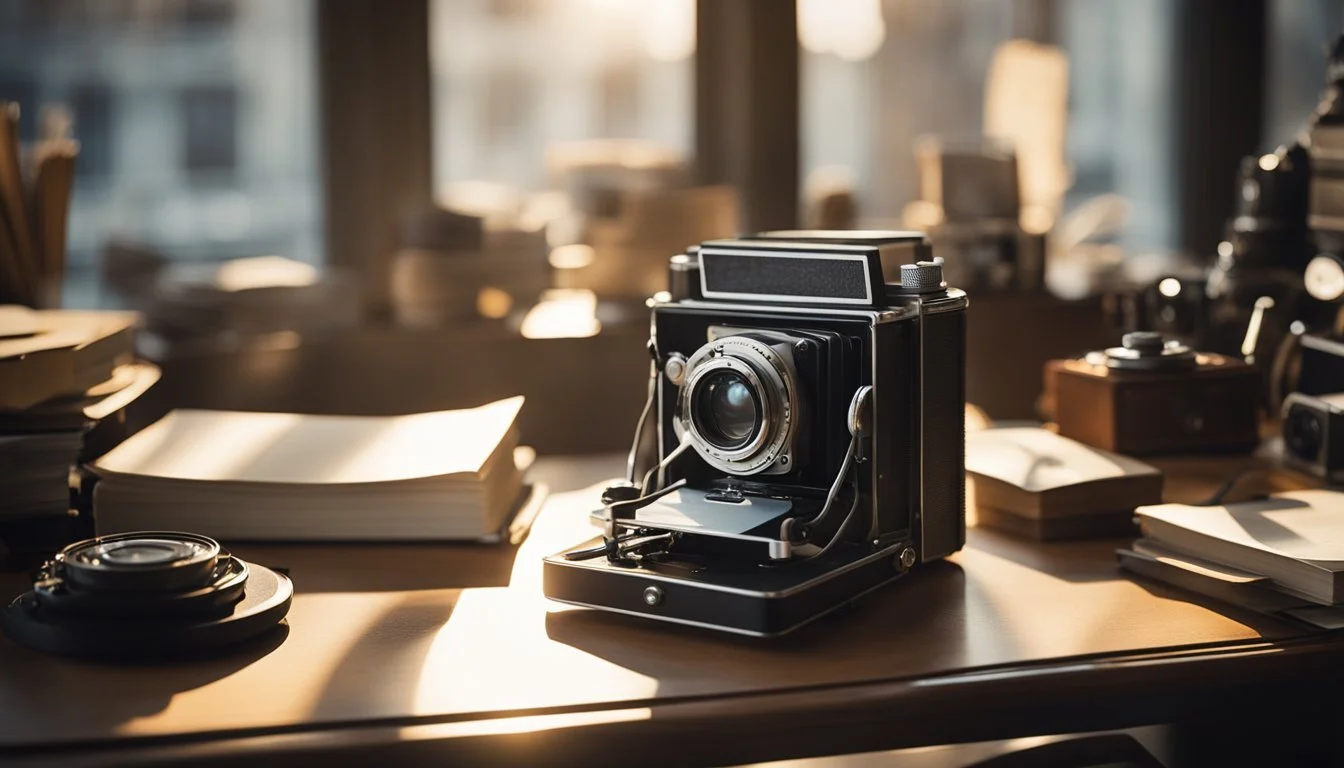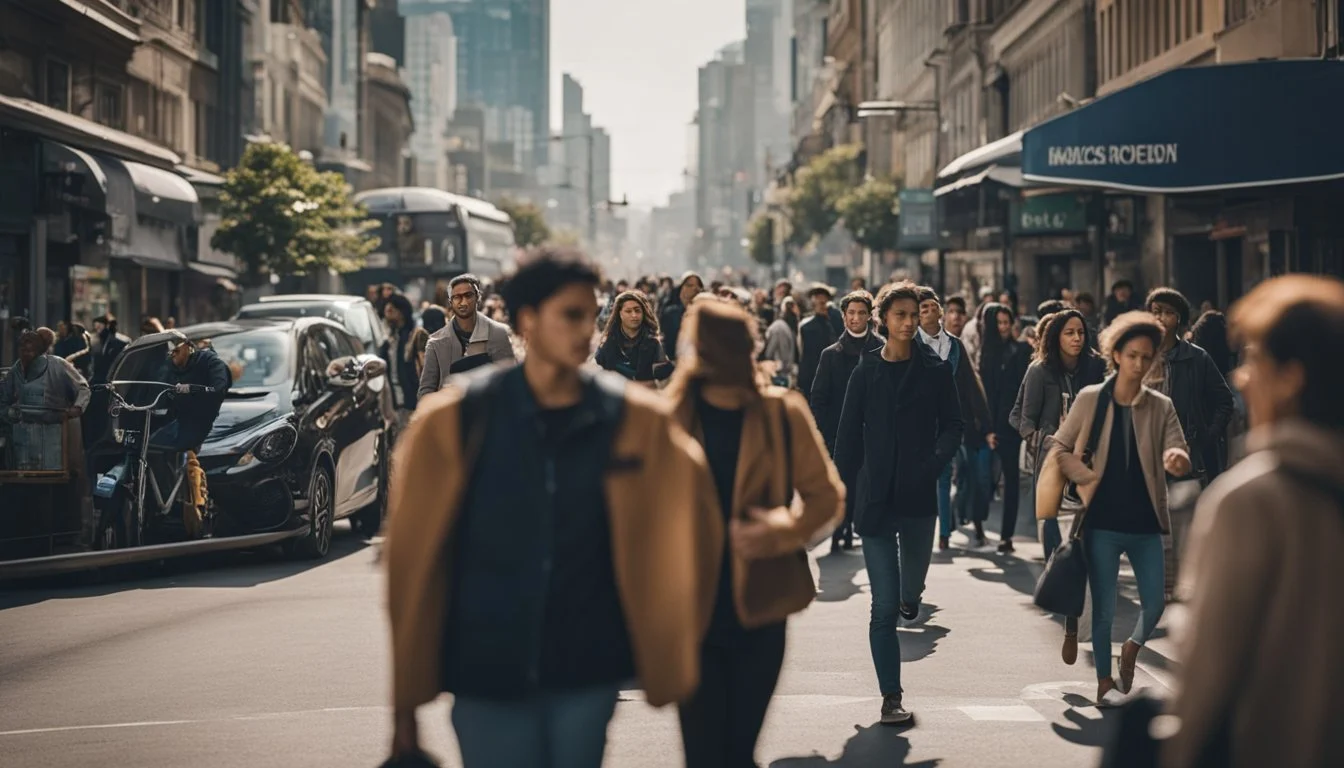Heddy Honigmann: Capturing the Poetry of Everyday Life in Documentary Film
Heddy Honigmann's films masterfully capture the poetry inherent in everyday life. Her work often focuses on the intimate moments and personal objects that reveal deeper truths about humanity. Whether it's a wallet, a song, or a gravestone, these elements become totems guiding personal experiences through grief and joy.
Known for her eclectic yet unified approach, Honigmann's storytelling weaves together varied human experiences into a cohesive narrative. Her film "O Amor Natural," for example, invites older Brazilians to engage with the erotic poetry of Carlos Drummond de Andrade, highlighting the timeless nature of love and desire.
Throughout her career, Honigmann was relentless in her exploration of human emotion. Her documentaries and fictional films alike exhibit a profound sensitivity to the small, significant details that make up a person's world, offering audiences a rare glimpse into the essence of daily life.
The Life of Heddy Honigmann
Heddy Honigmann was born on October 1, 1951, in Lima, Peru. Her parents, Jewish refugees from Europe, influenced her early life. Her mother, Sarah Pach Miller, was an actress and homemaker from Poland. Her father, Witold Honigmann Weiss, was an artist of Romanian descent.
She pursued studies in biology and literature before moving to Rome to attend the prestigious Centro Sperimentale di Cinematografia.
In 1978, Honigmann relocated to the Netherlands where she built a remarkable career as a film director. She worked on both fictional and documentary films, exploring themes of love, loss, and the human condition.
Her Peruvian and European heritage significantly influenced her eclectic storytelling style. Renowned for her sensitive portrayals, she often featured personal objects as symbolic elements in her films.
Honigmann's career spanned several decades. She directed notable documentaries like O Amor Natural (1997) and Forever (2006). O Amor Natural encapsulates the essence of erotic poetry through the voices of elderly Brazilians.
Forever delves into the lives of those who visit Père-Lachaise cemetery in Paris. Her films are often recognized for the intimate connections she builds with her subjects, reflecting their deepest emotions.
Heddy Honigmann passed away on May 21, 2022, at the age of 70. Her legacy lives on through her poignant films that continue to capture the poetry of everyday life.
Signature Documentary Style
Heddy Honigmann's work is distinct for her poignant use of music and her deep exploration of diasporas. These elements highlight the emotional and cultural layers of her subjects, rendering her documentaries both intimate and thought-provoking.
Use of Music
In Honigmann's films, music transcends mere background noise, becoming a character in its own right. O Amor Natural is a prime example, showcasing how Brazil's relationship with poetry and sexuality is accentuated through music.
Tracks often underscore key moments, helping to evoke emotions and connect viewers to the narrative. Her sensitive selection of music serves to bridge gaps between different cultures and generations, allowing viewers to experience the universality of human emotions.
Exploration of Diasporas
Honigmann delves deeply into stories of diasporas, offering nuanced perspectives on displacement and belonging. In Forever, she uses Paris's Père Lachaise cemetery to explore lives touched by migration and diaspora.
Gravestones of great artists and unknown individuals alike become portals into their histories. Honigmann's unflinching gaze captures the bittersweet essence of diaspora, highlighting how the longing for home and the creation of a new identity coexist within her subjects. Through poignant storytelling, she makes their private grief and resilience universally understood.
Major Works and Films
Heddy Honigmann's films explore the profound beauty and struggle within everyday life. Each work highlights unique aspects of human existence, emotion, and resilience through carefully crafted narratives and authentic character portrayals.
O Amor Natural
O Amor Natural delves into the intersection of poetry and sensuality. Focusing on the erotic poems of Carlos Drummond de Andrade, Honigmann creates a space where older Brazilians recite and reflect on the poems’ impacts on their lives. The film captures raw emotional honesty and personal memories, seamlessly blending poetry with lived experience. It offers a poignant exploration of human intimacy and the timeless nature of desire.
The Underground Orchestra
The Underground Orchestra documents the lives of refugee musicians in Paris, performing in streets and subways. Honigmann views music as both a survival tool and a means of preserving cultural identity amidst displacement. The film presents moving stories from diverse backgrounds, highlighting the musicians’ struggles and triumphs. It underscores the unifying power of music across borders and the resilience required to continue their artistic endeavors in a foreign land.
Forever
Forever takes viewers to the famous Père-Lachaise cemetery in Paris, a resting place for legendary artists. Through intimate encounters with visitors, Honigmann uncovers their personal connections to the deceased. The film reflects on the enduring impact of art, love, and memory, intertwining stories of admiration and loss. By capturing these moments, it elevates the cemetery from a place of mourning to a celebration of artistic legacy and emotional endurance.
Themes and Subjects
Heddy Honigmann's work delves deeply into the nuanced realms of human connection and cultural identity, often highlighting personal stories and the resilience of individuals in diverse contexts.
Human Connection
Honigmann's documentaries consistently explore the essence of human relationships. Her film The Underground Orchestra depicts musicians, displaced from their homelands, finding solace and community within the Paris metro. These narratives showcase the power of art and music in fostering connections despite adversity.
In O Amor Natural, she investigates Brazil's intimate relationship with the poetry of Carlos Drummond de Andrade, highlighting how poetry intertwines with personal and collective identities. Honigmann's films often feature close-ups and personal interviews, providing an intimate glimpse into her subjects' lives and the bonds they form.
Cultural Identity
Cultural identity is a recurring motif in Honigmann's work. By focusing on individuals displaced from their native lands, she delves into the complexities of maintaining one's heritage while adapting to new environments. The Underground Orchestra presents a tapestry of cultural backgrounds converging in Paris, each musician bringing a piece of their homeland's culture with them.
In O Amor Natural, she turns her lens toward Brazilian culture, using poetry as a vehicle to explore national identity and personal expression. Honigmann's films emphasize how cultural heritage persists and evolves, even in the face of displacement and change. Her storytelling reveals the universal quest for belonging and the importance of cultural roots.
Critical Acclaim and Awards
Heddy Honigmann has made significant impacts through her documentary filmmaking, receiving numerous accolades and influencing the genre extensively.
International Recognition
Heddy Honigmann's work has garnered worldwide attention, receiving numerous awards at prestigious film festivals.
Her documentaries have been featured in events like International Documentary Filmfestival Amsterdam (IDFA), Toronto International Film Festival (TIFF), and Sundance Film Festival.
She collected awards including the IDFA Living Legend Award and numerous Best Documentary titles at various festivals. Her ability to depict deep human emotions and connections has resonated globally, earning her critical acclaim and solidifying her reputation as one of the leading documentary filmmakers of her time.
Influence on Documentary Filmmaking
Honigmann's approach to documentary filmmaking has left a lasting mark on the industry.
She is known for her intimate and respectful portrayal of her subjects, adopting a style that encourages emotional engagement. Documentaries like "O Amor Natural" and "Forever" showcase her ability to blend personal stories with larger human themes.
Her influence extends through her innovative techniques and storytelling methods, inspiring a generation of filmmakers to explore human experiences authentically and empathetically. Her body of work continues to be a reference point for documentary filmmakers aspiring to capture the depth of everyday life.
Influences and Inspirations
Heddy Honigmann has drawn inspiration from numerous sources, shaping her unique documentary style. Renowned for her deep empathy and masterful storytelling, she often cites the literary works of Marcel Proust and the music of Frédéric Chopin as significant influences.
Her film Forever illustrates this beautifully as it explores Paris's Père-Lachaise Cemetery, connecting the lives and legacies of artists with the emotional testimonies of everyday people.
Artistic legacies such as those of Modigliani, Hedayat, and Mercoeur resonate through her work, emphasizing the nexus between life, memory, and art. This connection fosters a rich narrative tapestry, capturing not just the individuals but the emotions that define them.
Honigmann's eclecticism remains evident throughout her body of work. She integrates poetry, music, and personal mementos, creating a poignant blend that reflects the continuum of human experience. These elements act as totems, guiding her subjects as they navigate their lives.
Human stories are central to her craft. By engaging with both the living and the deceased, Honigmann evokes a profound sense of continuity. Her subjects' intimate relationships with art manifest as a celebration of humanity's enduring spirit.
Other sources of influence include the documentary aesthetics and metamodern poetics which she adopts and adapts. Her work often defies the conventional boundaries of documentary filmmaking, infusing each piece with a distinct, personal touch.
This meticulous intertwining of influences manifests in a body of work that is both intimate and universal, resonating across cultural and temporal landscapes.
Methodology and Filmmaking Process
Heddy Honigmann's approach to documentary filmmaking is deeply personal and nuanced. She skillfully combines intimate interviews with evocative cinematography to portray the emotional core of her subjects.
Interview Techniques
Honigmann employs a conversational interview style that fosters trust and openness. She often engages with her subjects in their own environments, allowing them to feel comfortable and authentic. This technique helps to reveal profound, unguarded moments.
Her questions are thoughtful and open-ended, encouraging in-depth responses. Honigmann listens actively, creating a dialogue rather than a traditional interview. This method results in a rich tapestry of personal stories that resonate deeply with viewers.
Cinematography
Honigmann’s cinematography captures the essence of everyday life through a keen, observational lens. She often uses natural lighting to maintain realism and intimacy. This choice enhances the authentic feel of her documentaries.
Her camera work is deliberate and unobtrusive, allowing subjects to naturally interact with their environment. Honigmann’s framing is often tight and personal, focusing on faces and expressions to convey emotion. She also incorporates long takes that provide a contemplative viewing experience. The visual style complements her interview techniques, creating a cohesive and immersive narrative.
Personal Philosophy and Motivations
Heddy Honigmann's work is driven by a profound commitment to capturing the human experience. Her films explore the simple yet profound moments that define individual lives.
She believes in the power of everyday objects. Items like poems, songs, and personal belongings become symbols in her narratives. They reflect the emotional landscapes of those she documents.
Her use of cemeteries as locales exemplifies her belief in memory's enduring nature. Honigmann views these spaces as reservoirs of shared stories and legacies.
Art and life are inseparable in her philosophy. She often highlights how art, whether through music, literature, or visual media, intertwines with daily existence and personal identity.
She approaches her subjects with respect and empathy. This allows for a genuine depiction of their stories, free from sensationalism.
Her motivations include a desire to honor the art and memories of the people she films. Each project is dedicated to understanding the deeper emotional currents that run through their lives.
Honigmann's work is eclectic yet unified by these themes. Her documentaries often feature diverse subjects, yet they are bound by her consistent approach to storytelling.
In essence, Heddy Honigmann's personal philosophy centers on the belief that every life has a story worth telling, and through these stories, one can find a universal connection to the human experience.
Impact and Legacy
Heddy Honigmann's work has left an undeniable mark on both film and art, inspiring future filmmakers and enriching the cinematic landscape with her unique vision and storytelling.
Influence on Future Generations
Heddy Honigmann's documentary style, marked by its intimacy and empathy, has inspired many emerging filmmakers. Her ability to capture the human condition in its rawest form has become a blueprint for aspiring documentarians worldwide.
Many directors cite her influence in their own work. They aim to emulate her talent for blending personal narratives with broader social themes. This legacy ensures that Honigmann's impact will be felt for years to come.
Honigmann's focus on deeply personal stories has shifted the documentary genre's boundaries. By prioritizing her subjects' emotions and experiences, she opened up new avenues for narrative exploration.
Contribution to Film and Art
Honigmann's films are celebrated for their poetic and heartfelt portrayal of everyday life. Her unique approach to storytelling in both fictional and documentary formats has expanded the language of cinema.
Her documentary "Metal and Melancholy," displaying the lives of Peruvian taxi drivers, is a prime example of her method. It combines sociopolitical insight with personal stories, offering a multifaceted view of reality.
Through her extensive filmography, Honigmann has contributed significantly to the art of filmmaking. Her work remains a touchstone for discussions on cinematic empathy, representation, and narrative complexity.
Her legacy is also evidenced by numerous retrospectives and tributes, underscoring her enduring influence on contemporary and future cinema.








